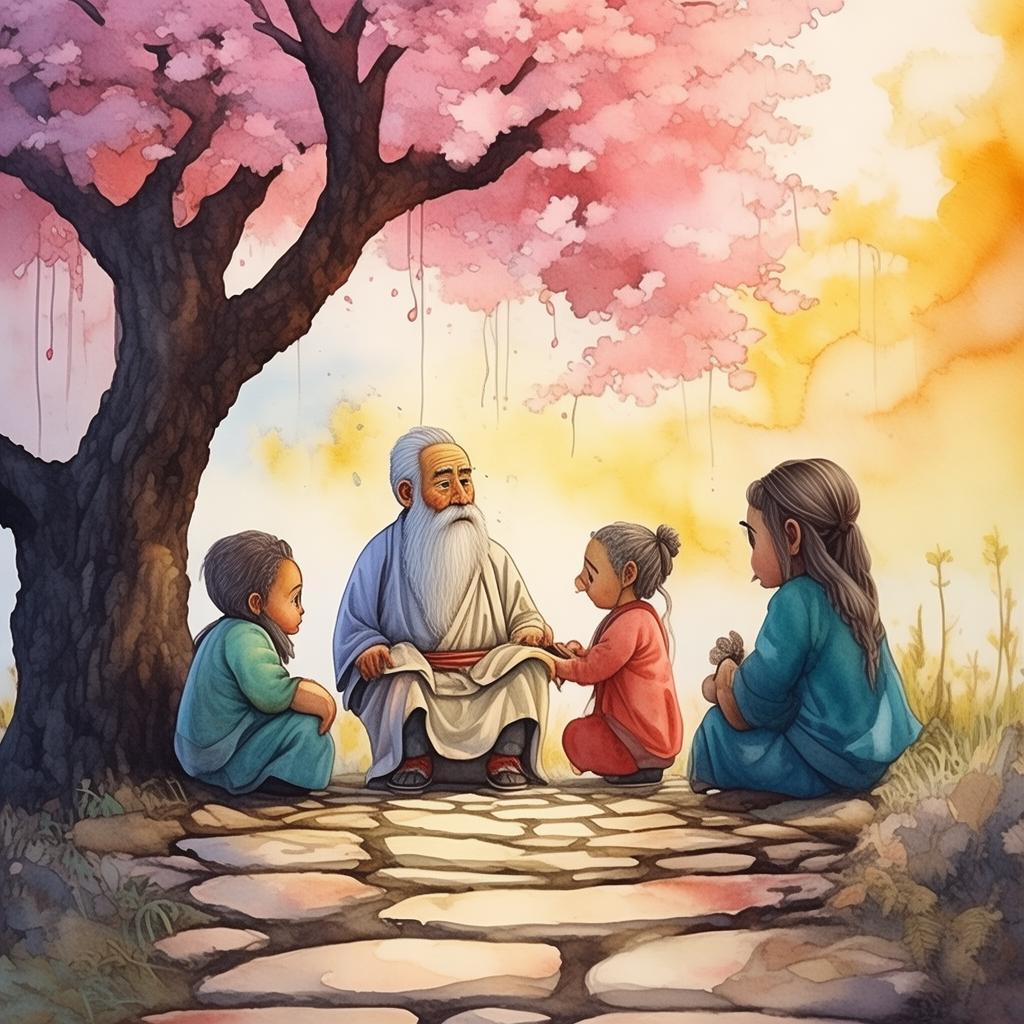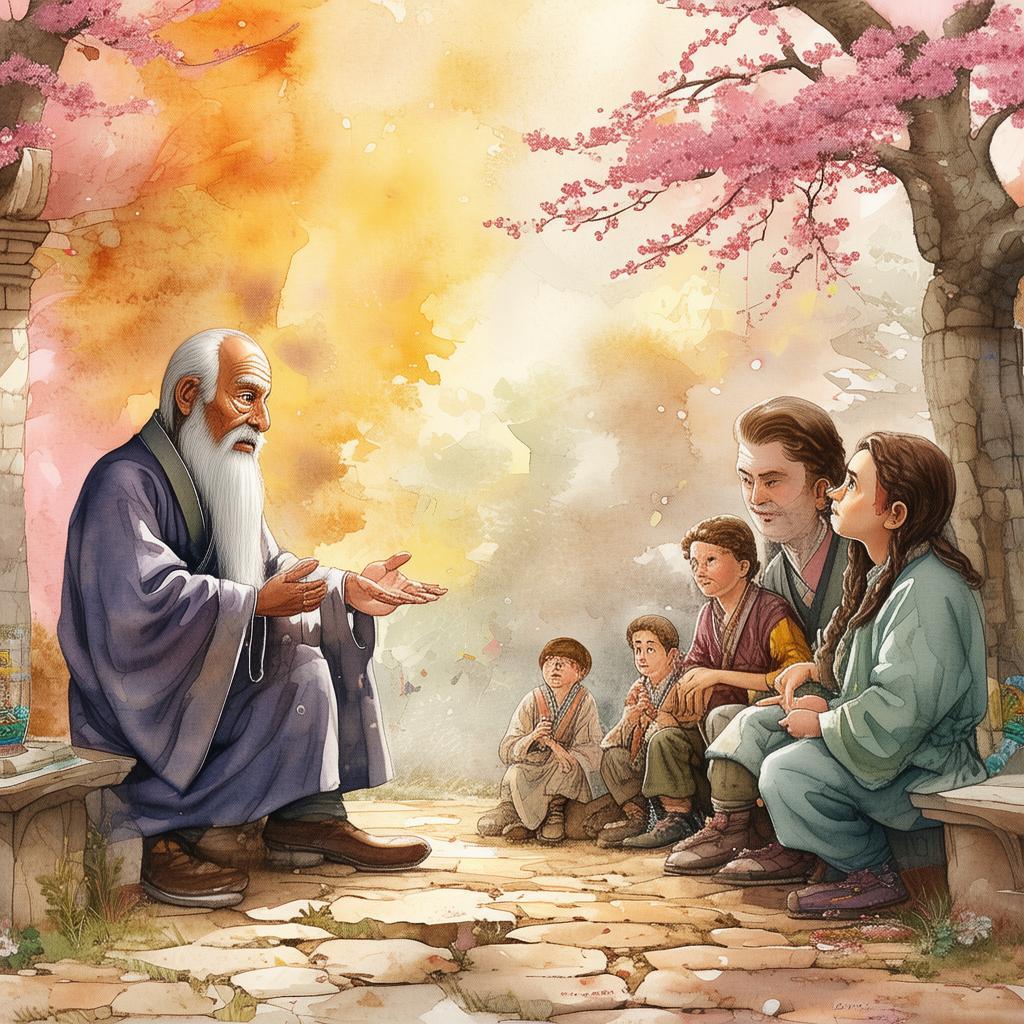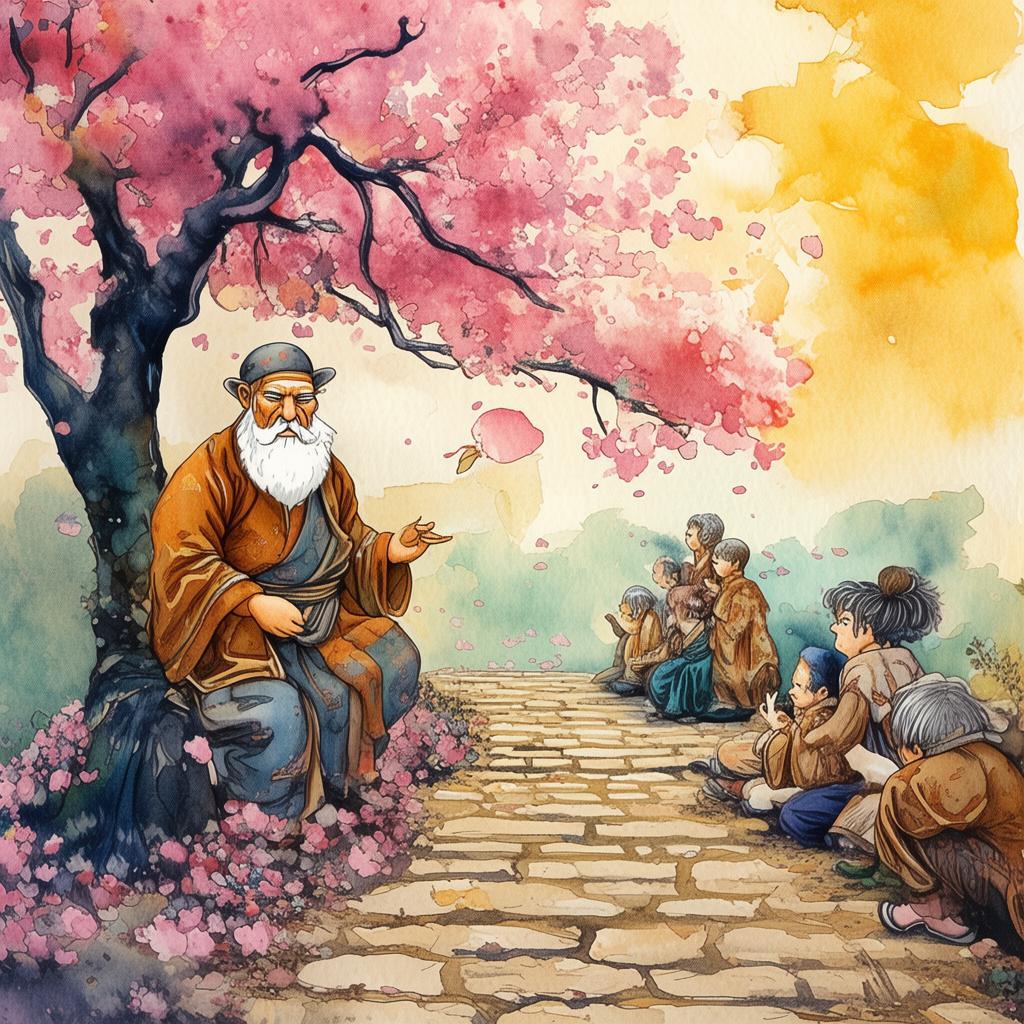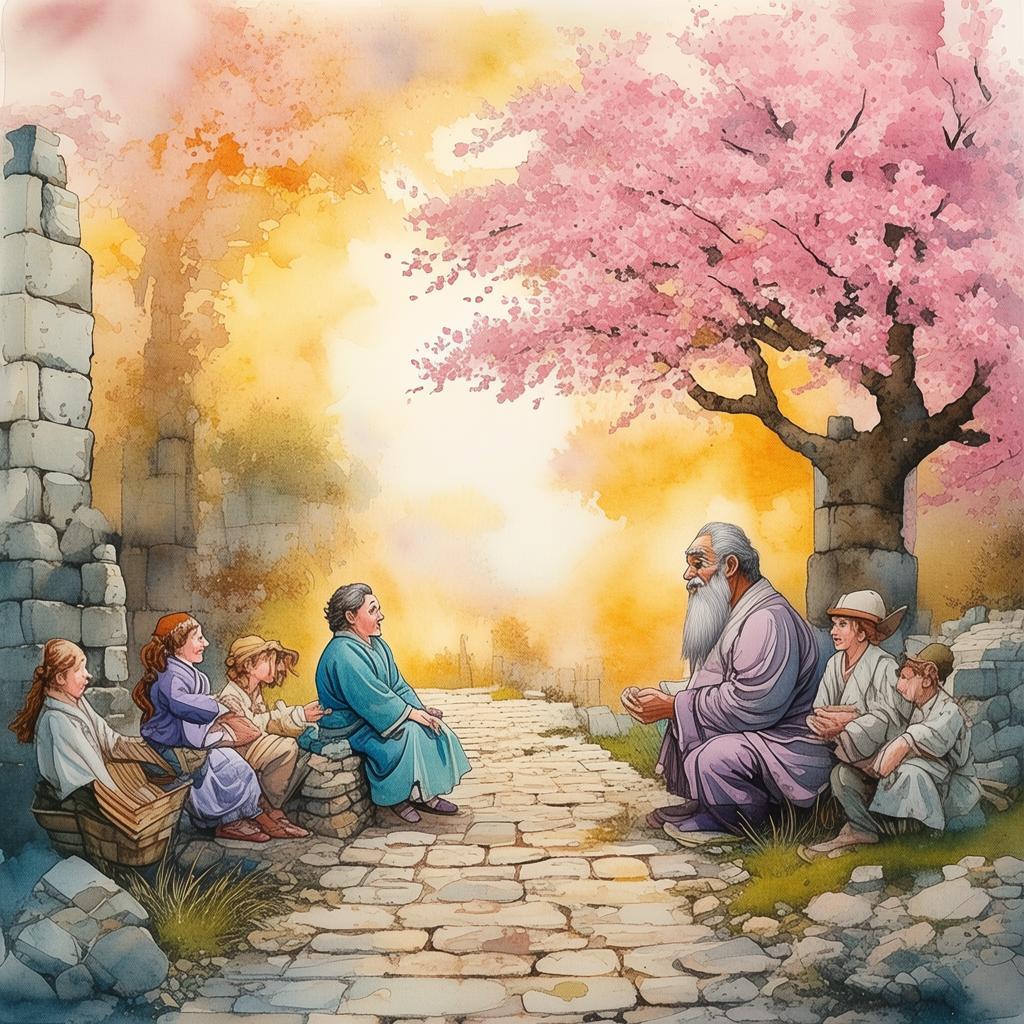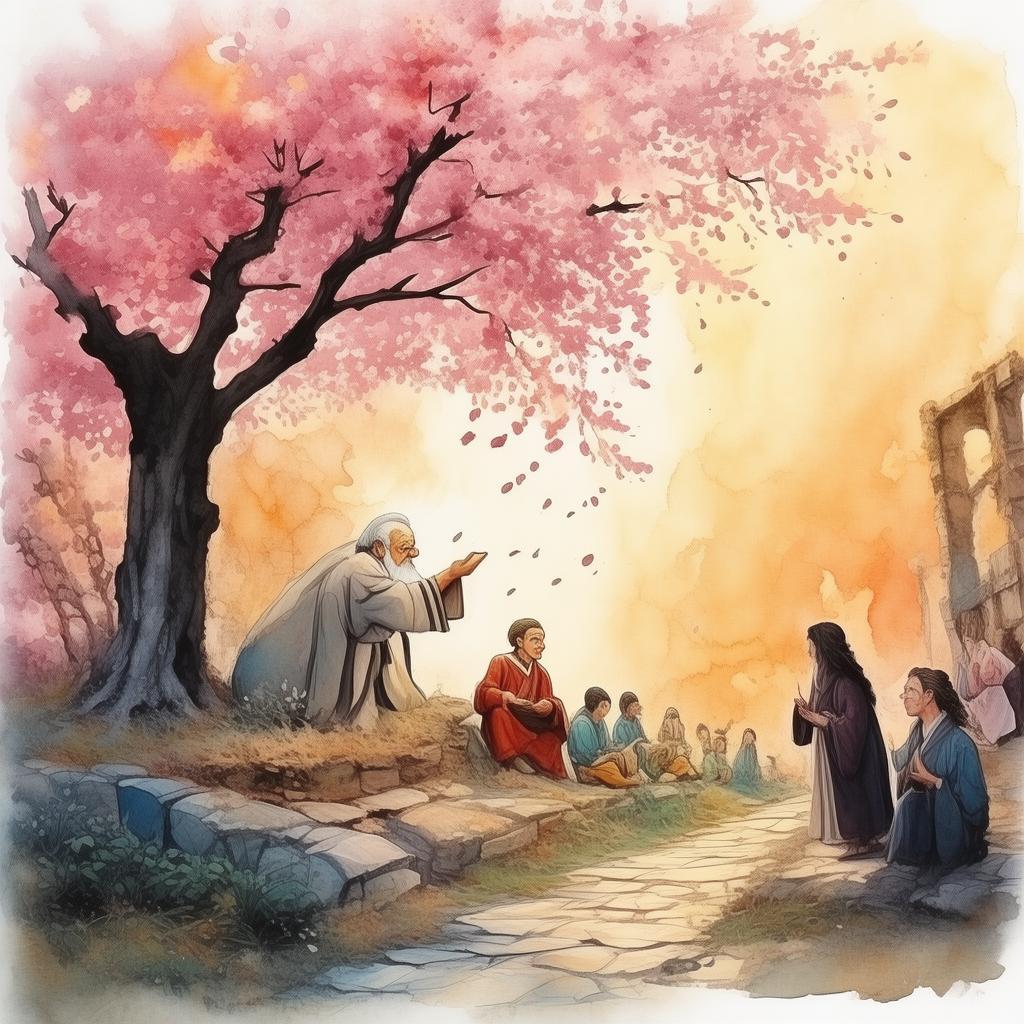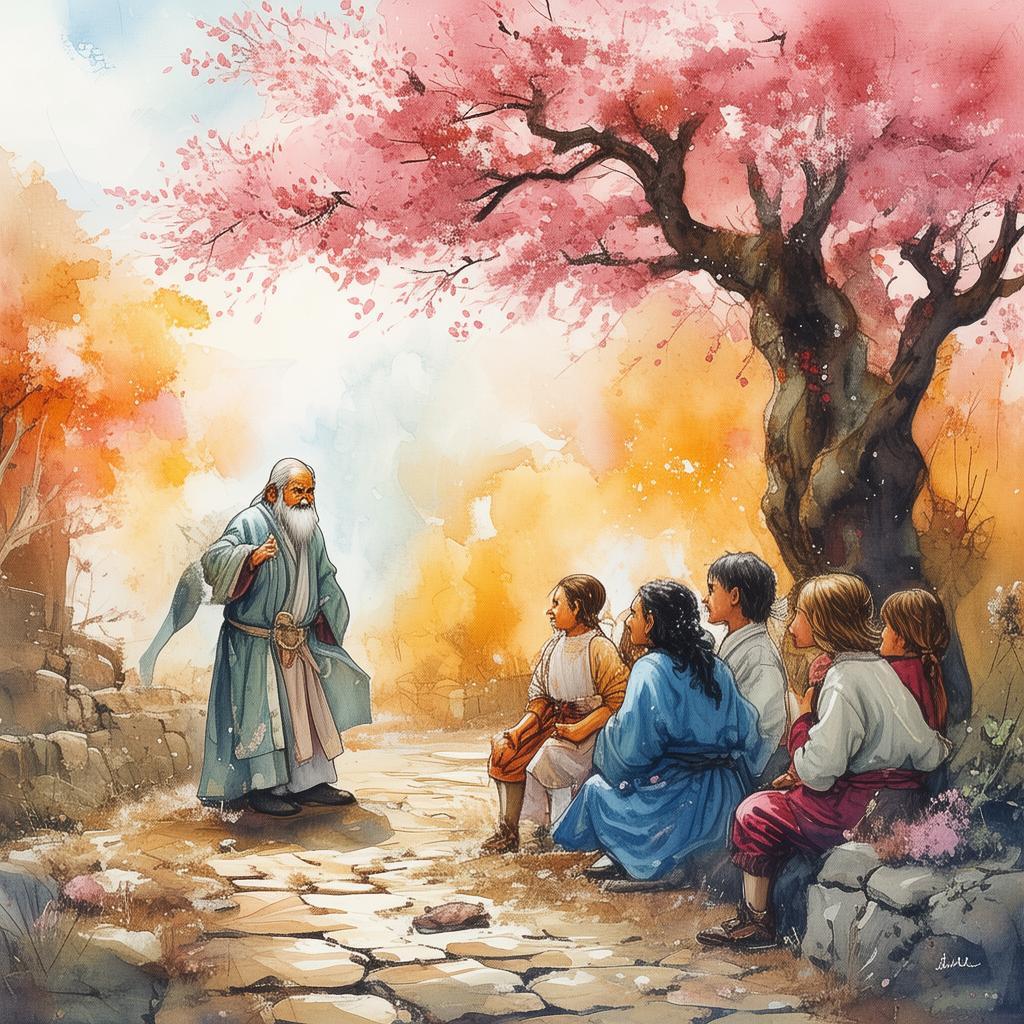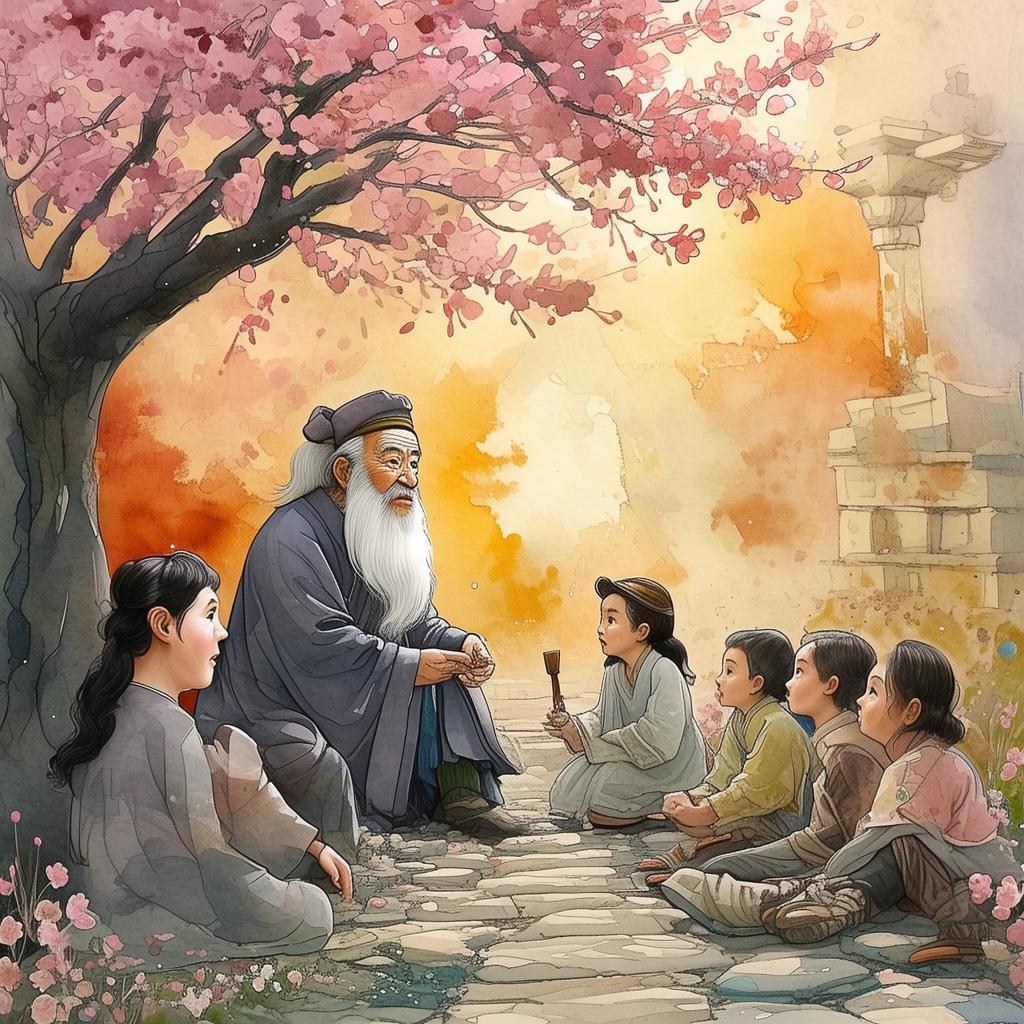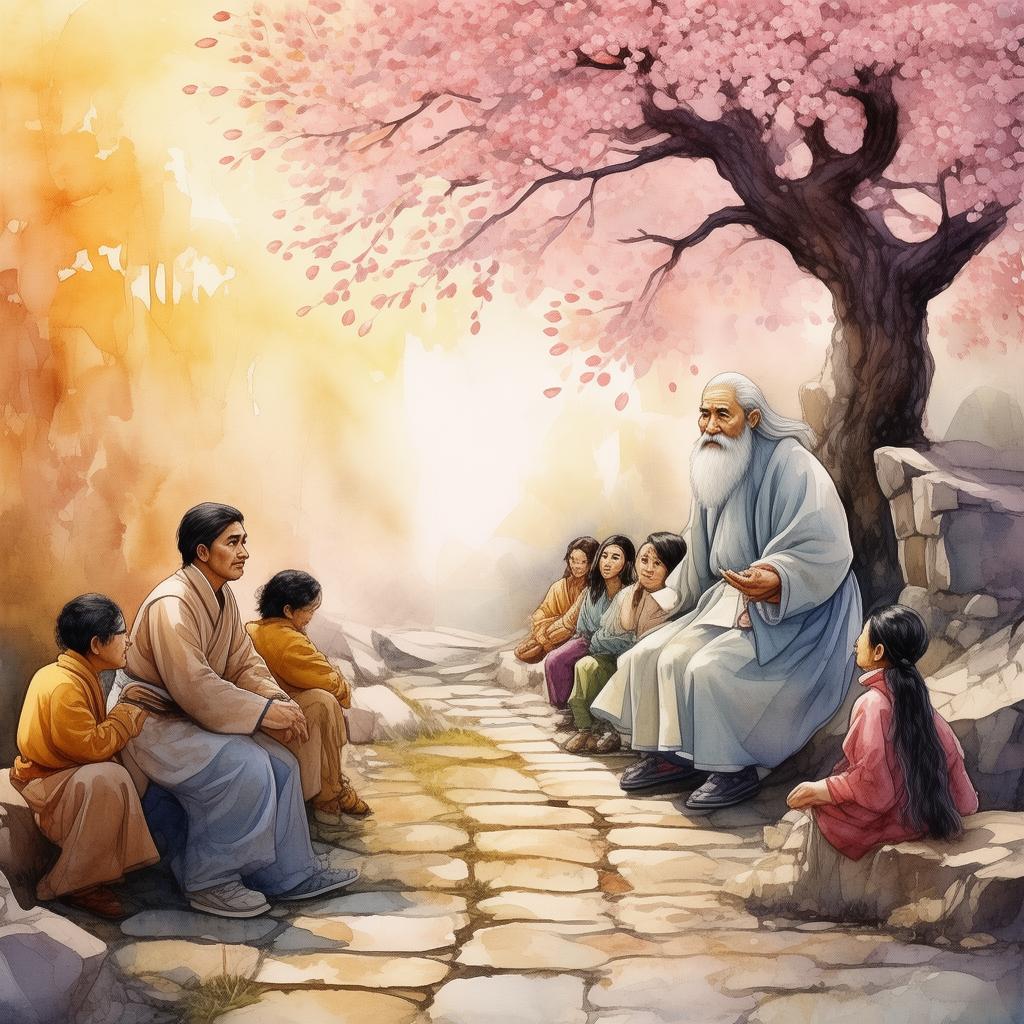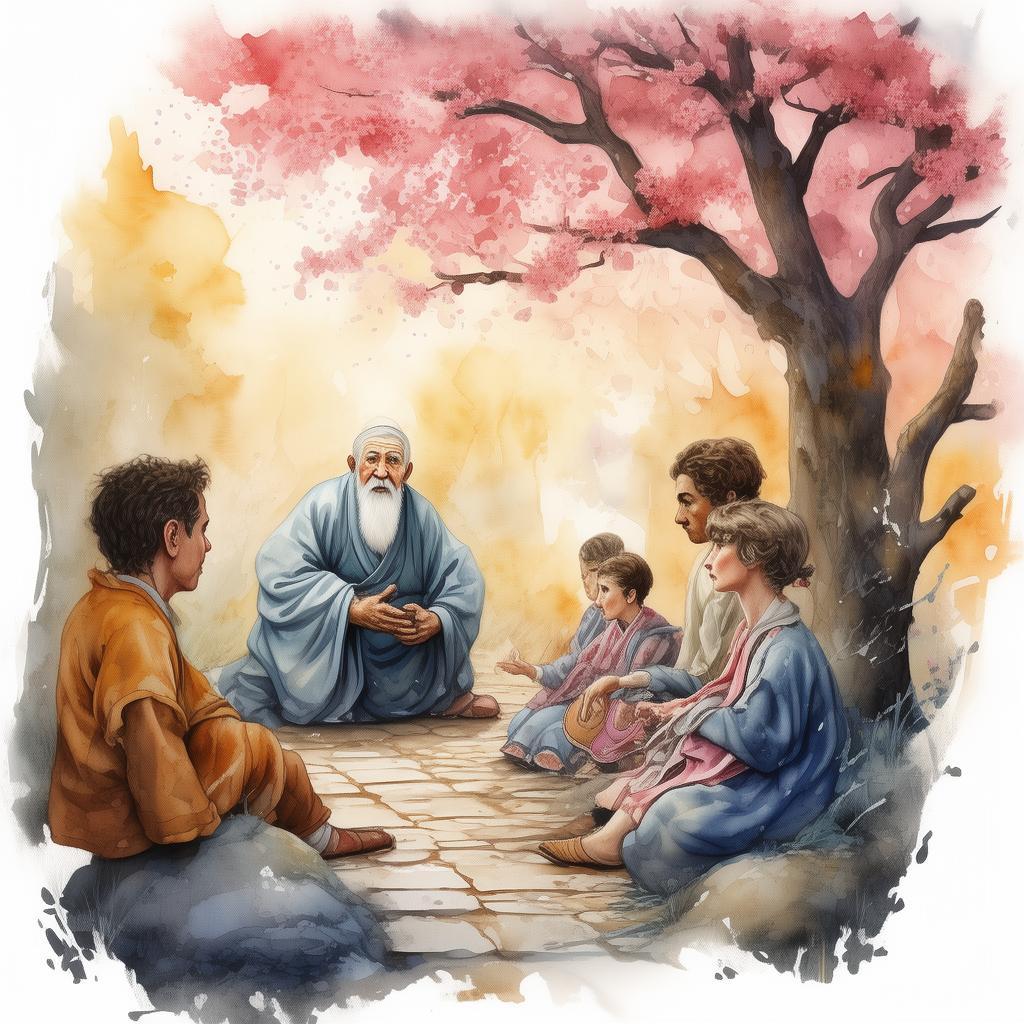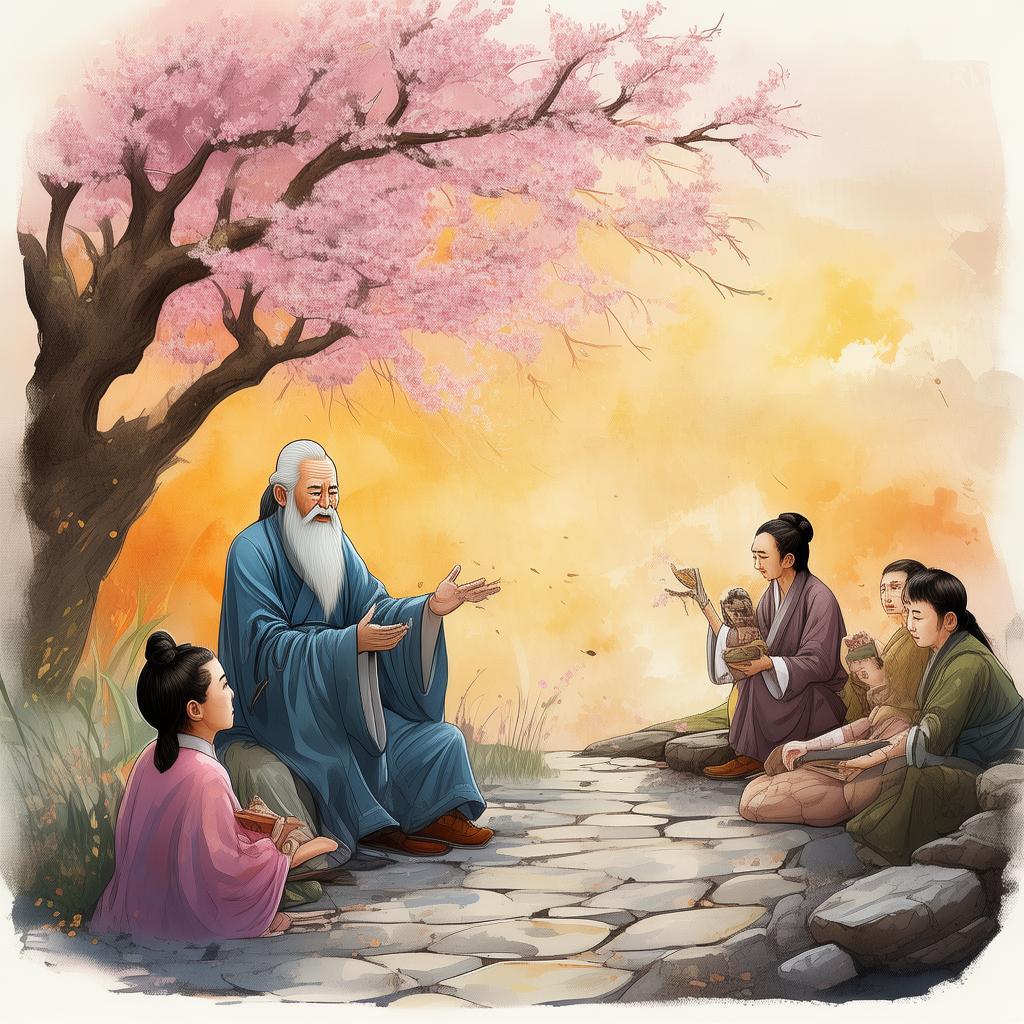Revolution's Eulogy: The Scribe's Final Symphony
In the heart of the waning empire, amidst the rustle of leaves that whispered of change, there stood a scribe whose ink had been the blood of the revolution. His name was Feng, a man of many stories and a heart that had been shattered by the weight of his people's plight. His life had been a tapestry of rebellion and hope, woven into a symphony that would echo through the ages.
Feng had lived through the birth of a revolution, a revolution born from the cries of the oppressed. The empire, once a beacon of power, had grown dim, its glow fading as the light of tyranny took over. The scribe, with his quill and ink, had chronicled every act of resistance, every uprising, every moment of hope that flickered amidst the darkness.
As the revolution raged on, Feng's tales became legend. His words were like a clarion call to arms, stirring the hearts of the disheartened and inspiring the brave. Yet, with each passing day, the light of the revolution grew dimmer, and the empire's grip on its people tightened with ironclad resolve.
The final chapter of The Scribe's Symphony was not one of triumph but of farewell. Feng knew that the end was near. The revolution, which had once been a roaring tide, was now but a gentle breeze, and the empire was not far from claiming victory. The scribe had seen the signs, and he had known that his time was drawing to a close.
One night, as the moon hung low and the stars shone with a somber glow, Feng sat before his desk, the quill in his hand poised to write the last of his tales. The room was hushed, save for the sound of the quill scraping against the parchment, and the faintest of whispers from the wind outside.
With each word, Feng's tale grew more poignant, more filled with the bittersweet memories of a life dedicated to the cause. He wrote of the battles fought, the lives lost, and the unyielding spirit that had driven the revolutionaries forward. He wrote of the empire's cruelty and the resilience of the people.
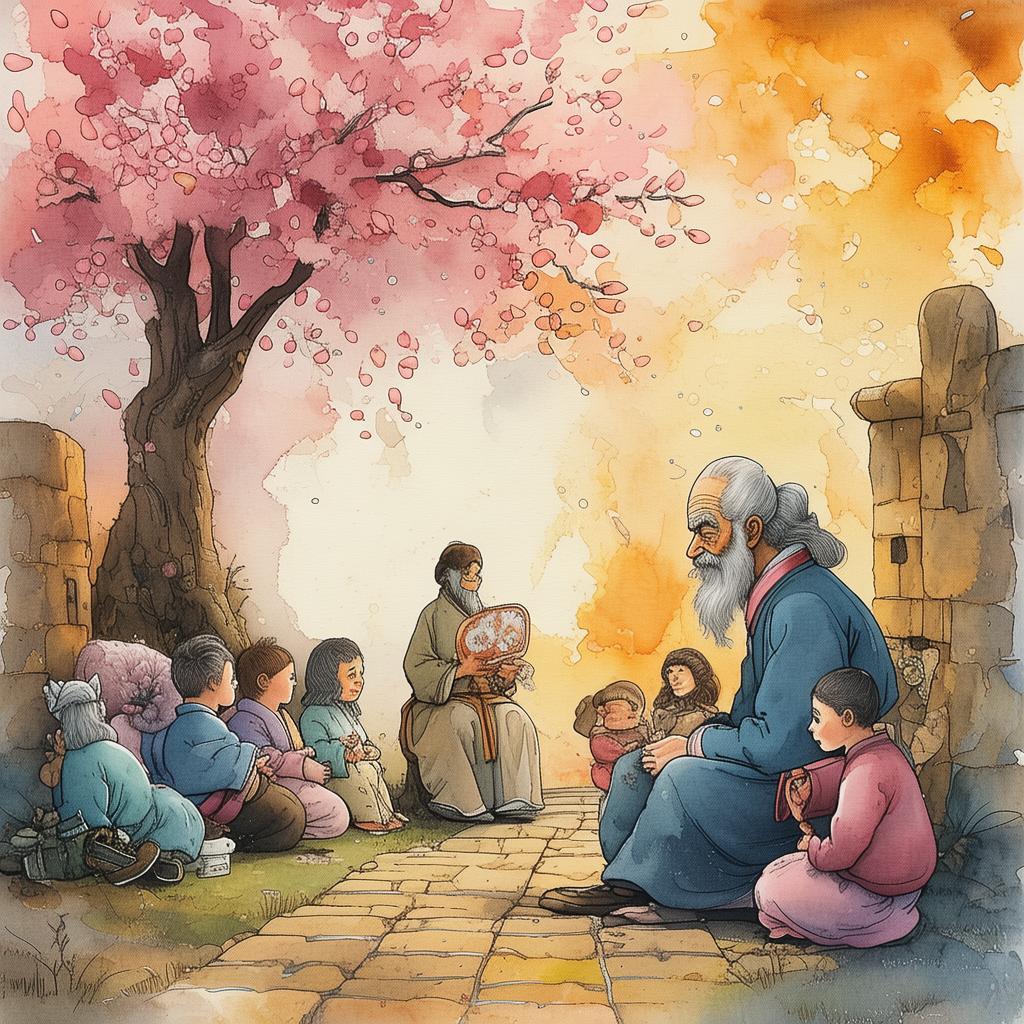
As the last line was drawn, the quill fell from his grasp, and Feng's breath was heavy. He had finished his symphony, his farewell to the revolution that had consumed his life. But as he closed his eyes, he felt a strange calm settle over him, a peace that had eluded him for so long.
In the quiet of the night, the scribe felt the revolution's spirit within him, a force that would continue to inspire others even after his own departure. He knew that his story would live on, not just in the pages of his book, but in the hearts of those who had fought for freedom.
The next morning, as the sun rose and bathed the world in light, Feng walked out into the street. The revolution had been his life, his reason for living. Now, it was time for him to pass on his legacy, to leave his symphony in the hands of those who would continue the fight.
He found a young revolutionary, a girl whose eyes held the spark of defiance and the courage of a thousand men. To her, Feng whispered his last words, a message that would resonate through the ages.
"The revolution is not a battle that is won or lost," he said softly. "It is a journey, one that never ends. Your spirit will live on, and your story will be the song that guides others."
With that, Feng stepped into the light, his form blending with the morning mist as if he were a specter of the revolution itself. The girl watched as he faded away, her heart heavy with loss yet filled with an indomitable resolve.
And so, the final chapter of The Scribe's Symphony was written not with ink but with the legacy of a man whose life had been dedicated to the cause of freedom. His story would be the eulogy of a revolution, a testament to the unyielding spirit of a people who would not be subdued.
As the days turned into weeks and the weeks into months, the revolution continued to wane, and the empire claimed its victory. But the scribe's symphony, his final farewell, remained a beacon of hope, a reminder that the spirit of revolution never truly dies.
In the end, it was not the revolution that failed, but the empire that fell. And in the hearts of those who had fought, the scribe's symphony played on, a testament to the enduring power of hope and the indomitable will of the human spirit.
✨ Original Statement ✨
All articles published on this website (including but not limited to text, images, videos, and other content) are original or authorized for reposting and are protected by relevant laws. Without the explicit written permission of this website, no individual or organization may copy, modify, repost, or use the content for commercial purposes.
If you need to quote or cooperate, please contact this site for authorization. We reserve the right to pursue legal responsibility for any unauthorized use.
Hereby declared.
